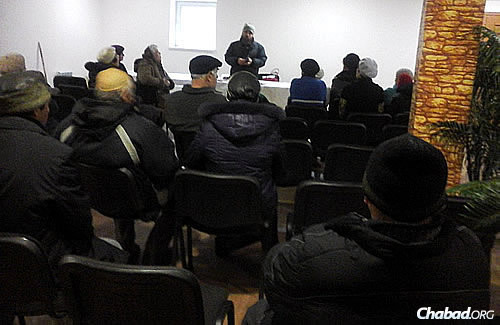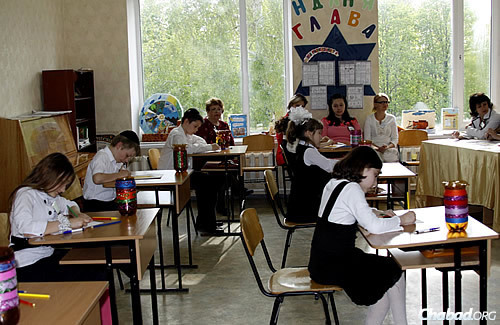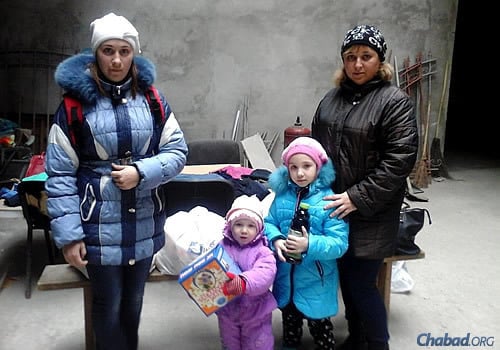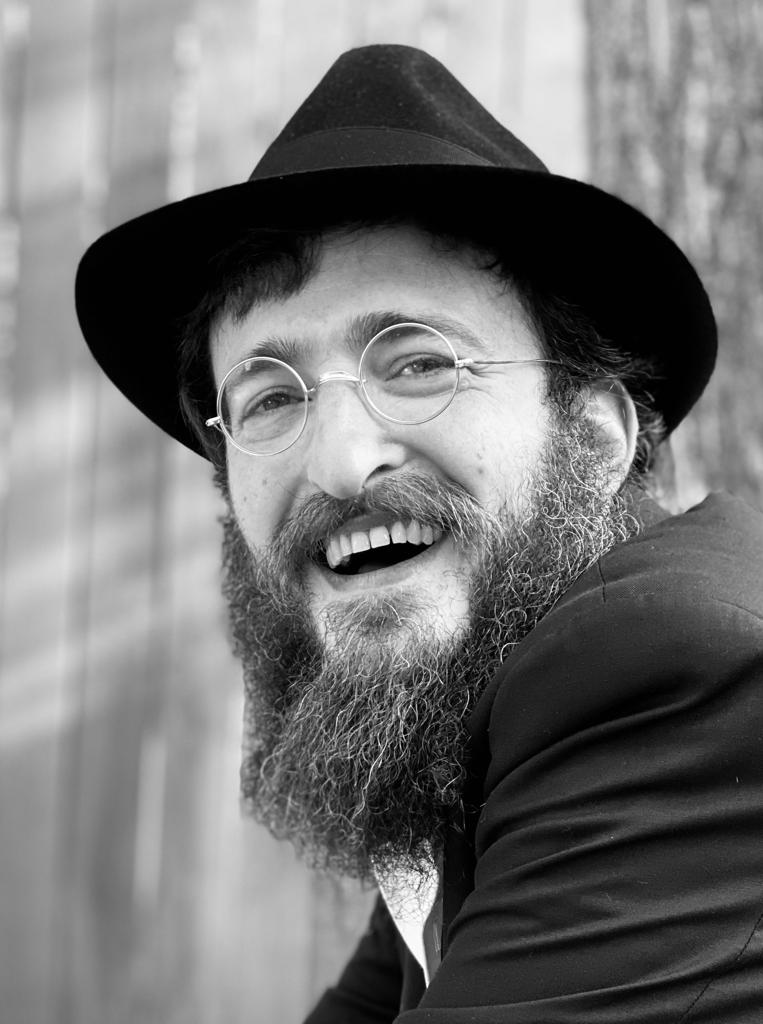News reports claiming that representatives of the separatist Lugansk People’s Republic violently confiscated the Beit Menachem-Or Avner Chabad Jewish day-school building in Lugansk, Ukraine, are false, according to the embattled city’s chief rabbi, Shalom Gopin.
“At the end of March, representatives of the LPR entered our school building in Lugansk and told our guards that it appeared that the Jewish community was forfeiting the building, and they were taking it,” said Gopin, who has served as the Chabad emissary in Lugansk since 1999.
The report, which appears to have originated in the Russian-language newspaper Severodonetske Strasti and has since been picked up by other Ukrainian outlets, claimed that a Jewish-community official and a security guard were shot during the incident. Gopin corrected the record, noting that the LPR representatives left without incident after Lugansk Jewish-community officials arrived to dispute the claim.
In the weeks since the event, Gopin and others have reached out to the LPR’s minister of religion, who assured the Jewish community that the seizure was a mistake. Gopin said they have since received the personal guarantee of Igor Plotnitsky, the head of the unrecognized rebel republic, assuring that no further attempts at the building will be made.
“The kitchen at our school was in operation during Passover, and the community’s food for the holiday was prepared there,” added Gopin. “We have been running a soup kitchen out of the synagogue kitchen and plan on opening one at the school, too. We also hope to restart our Jewish preschool at the premises soon.”

Until the war that has rocked eastern Ukraine for the last year, the Beit Menachem School, which Gopin and his wife, Chana, opened in 2006, had more than 130 students.
‘The Strength to Cope’
Although Gopin and his family left Lugansk amid heavy fire a little less than a year ago, they have continued to serve their community. A 10-day Passover retreat for Jewish refugees from Lugansk was held at Chabad-Lubavitch of Zhitomir’s campgrounds in western Ukraine, gathering more than 60 participants.
“The seder was very emotional for all of us, of course,” acknowledged Gopin, who was still in Lugansk for Passover last year, albeit under tense circumstances.
Similar to the importance placed on attending synagogue on the High Holidays by American Jews, Passover is widely celebrated by Jews in the former Soviet Union. Last year, more than 150 Jews gathered for Gopin’s communal seder at the synagogue on the first two nights of Passover, with another 100 people using matzah and wine distributed by the synagogue to celebrate at home.

“This year we were unable to arrange a public seder in our synagogue in Lugansk because the seder starts in the evening, and people do not go out at night now,” explained Gopin.
Fighting around Lugansk ceased shortly prior to the signing of the second Minsk Protocol by representatives of Ukraine, Russia, the Organization for Security and Cooperation in Europe (OSCE), LPR and Donetsk People’s Republic (DPR) in mid-February. Yet a citywide 11 p.m. curfew remains in effect, and most public transport ceases by 8 p.m.

“Since people don’t want to leave their homes at night, we arranged for 15 seders to be held in private apartments around the city,” said Gopin. “Everyone got traditional kosher-for-Passover food, matzah and wine from our kitchen, and then people signed up to attend a seder held in their neighborhood.”
Some 150 people took part in the toned-down Passover festivities, and while less than ideal, Gopin said he’s happy his community was able to celebrate despite the circumstances, imbibing in the four cups of wine, and eating matzah and maror (the bitter herbs).
“This Passover was very unusual for us,” said Chana Gopin, as she reflected on the year’s tumultuous events. “Passover is a time to celebrate together with your family and your community, but this year, we had no alternative but to not be in our own city.
“It has been 10 months since fighting started, but one outcome of all of this is how much closer our community has become to each other,” she continued. “Passover together in Zhitomir gave us the opportunity to be together again, and it gives us all the strength to cope. No one knows when this will all end, and being able to gather together and eat, sing, pray together, just to be together—it gave us strength as a family and as a community.”






Join the Discussion